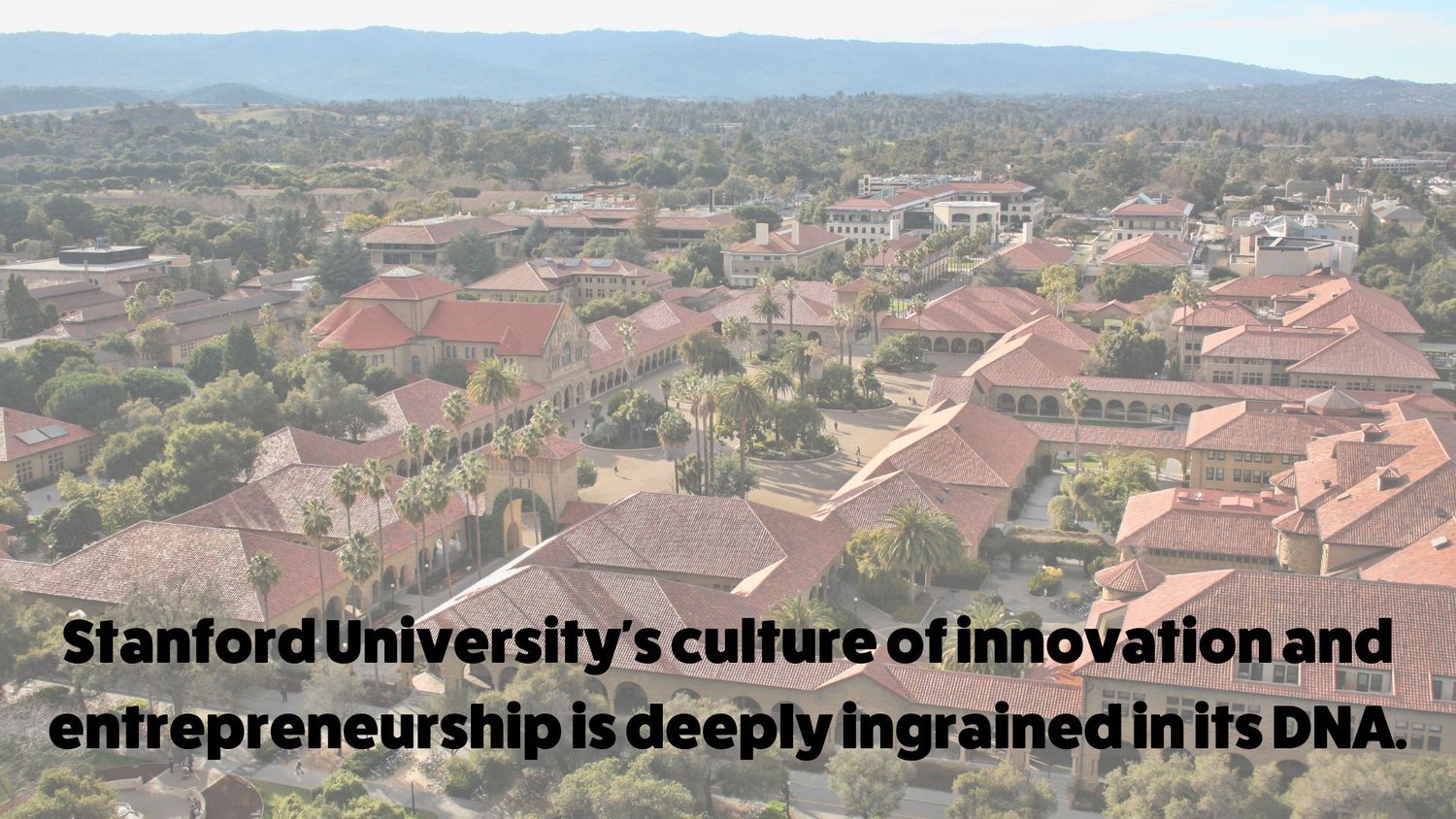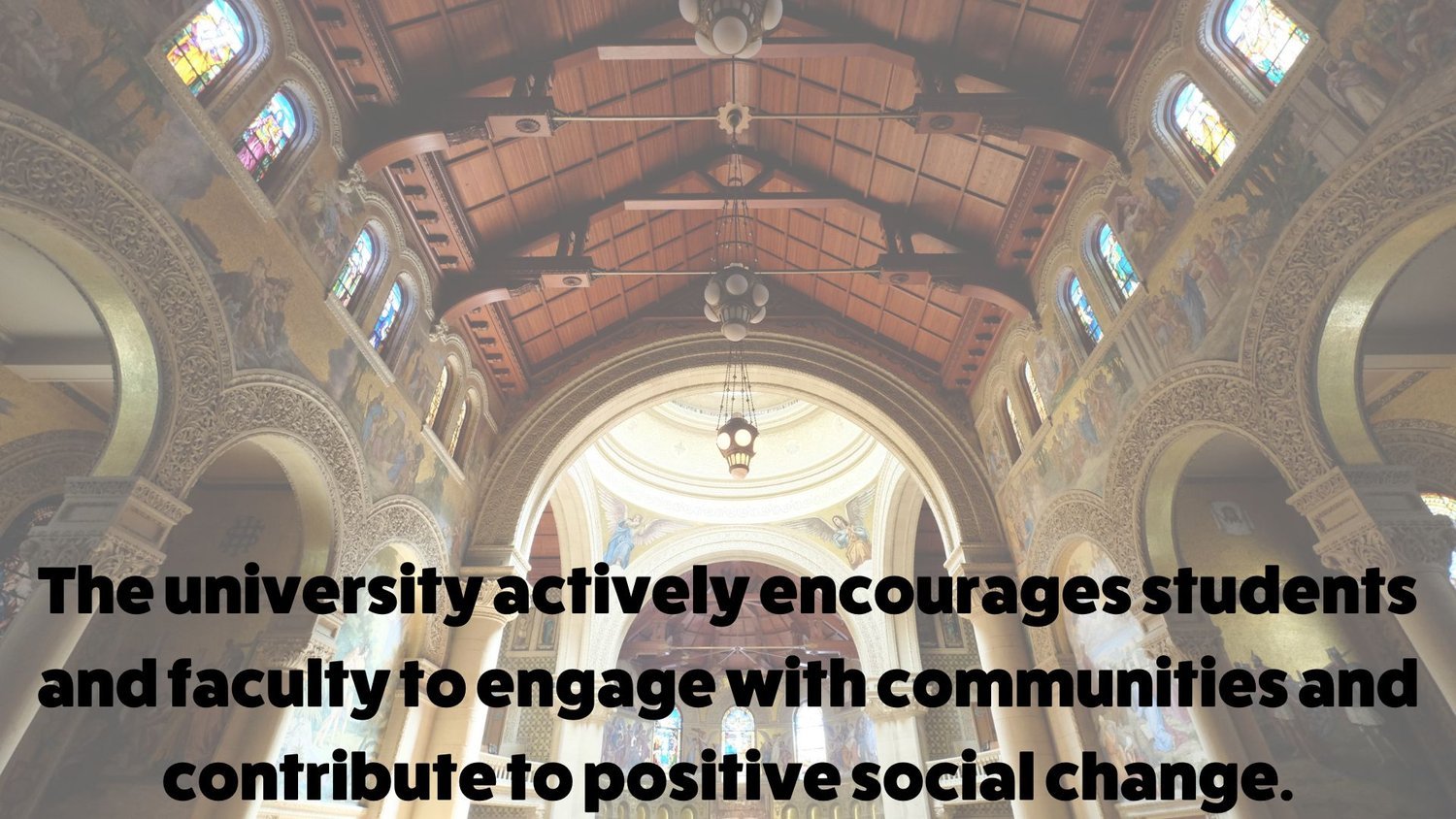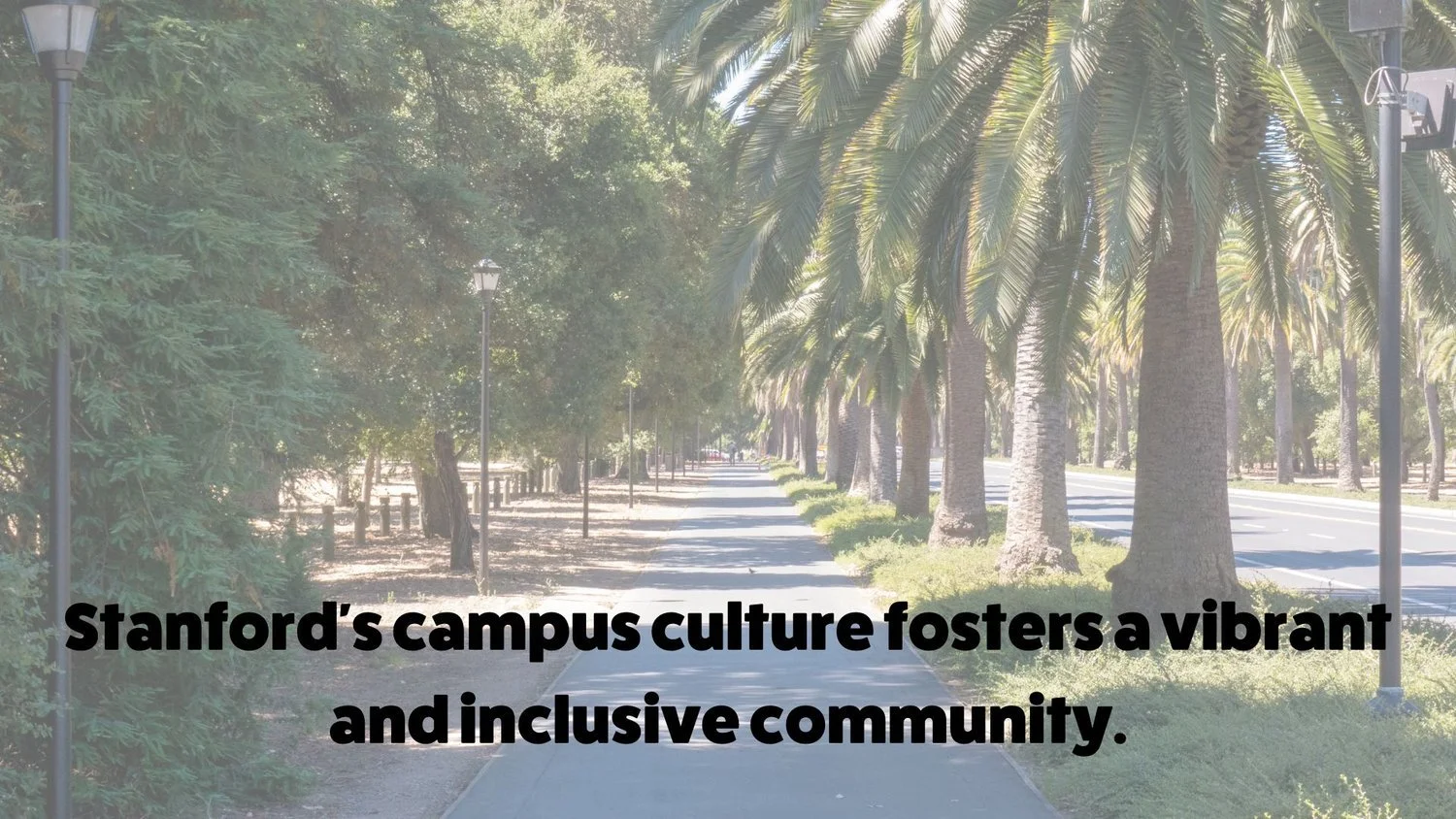What is Stanford Known For? Unveiling Stanford's Global Prestige
Nestled in the heart of Silicon Valley, Stanford University has built a sterling reputation as a bastion of academic excellence, innovation, and groundbreaking research. As one of the world's foremost educational institutions, Stanford stands tall among the most prestigious universities, renowned for its exceptional faculty, state-of-the-art facilities, and a vibrant intellectual community that pushes the boundaries of knowledge. In this blog post, we embark on an enlightening journey to unravel the secrets behind Stanford University's global reputation and discover what truly sets it apart.
Interested in showcasing your intellectual vitality and initiative during high school? Find out how YOU can apply artificial intelligence to the subjects that interest you in InspiritAI’s AI Scholars Program. Students in the Inspirit AI Scholars program craft interdisciplinary AI projects engaging subjects of personal interest to them. Additionally, many students who have participated in the AI+X Individual Research Mentorship have gone on to win prestigious awards at various science fair competitions!
Stanford's academic programs span a wide range of disciplines, with its esteemed schools, including the School of Humanities and Sciences, the School of Engineering, and the Graduate School of Business, consistently ranked among the world's best. The university attracts and cultivates a diverse student body, fostering an atmosphere of intellectual curiosity, collaboration, and transformative learning experiences. But Stanford's influence extends far beyond its hallowed halls; its impact on the world is felt through groundbreaking research, groundbreaking innovations, and a profound entrepreneurial spirit that defines Silicon Valley. Join us as we delve into the core pillars of Stanford's renown, exploring its academic excellence, research prowess, innovative mindset, and the vibrant campus culture that make it a beacon of knowledge and inspiration for generations to come.
1. ACADEMIC EXCELLENCE AND RESEARCH
At the heart of Stanford University's global reputation lies its unwavering commitment to academic excellence and its exceptional research contributions. The university offers a wide range of undergraduate and graduate programs across various disciplines, ensuring that students have access to top-tier education and rigorous intellectual development.
Stanford's distinguished faculty members are at the forefront of their respective fields, recognized globally for their groundbreaking research, scholarly contributions, and innovative teaching methods. Students have the privilege of learning from these renowned experts, engaging in thought-provoking discussions, and benefiting from their mentorship. The faculty's commitment to teaching excellence creates an environment that fosters intellectual curiosity, critical thinking, and a lifelong love of learning.
One of Stanford's hallmarks is its robust research ecosystem, spanning both fundamental sciences and applied technologies. The university houses numerous research centers, institutes, and laboratories that tackle some of the world's most pressing challenges. From the Stanford Linear Accelerator Center (SLAC) to the Stanford Woods Institute for the Environment, these institutions bring together interdisciplinary teams of researchers to push the boundaries of knowledge.
Stanford's research endeavors have had a transformative impact across a wide spectrum of disciplines. In the field of medicine, Stanford has pioneered groundbreaking advancements in genomics, precision medicine, and stem cell research, revolutionizing healthcare practices and improving patient outcomes. In the realm of computer science and artificial intelligence, Stanford researchers have made significant contributions to the development of algorithms, machine learning, and robotics, shaping the future of technology.
Furthermore, Stanford's commitment to interdisciplinary collaboration allows researchers to tackle complex problems by bridging traditional academic boundaries. Initiatives like the Stanford Institute for Human-Centered Artificial Intelligence (HAI) bring together experts from computer science, social sciences, humanities, and ethics to address the societal implications of AI and develop responsible and inclusive AI technologies.
The university's research efforts extend beyond the laboratory and into the realm of entrepreneurship and innovation. Stanford has a strong culture of translating research findings into real-world applications and startups. The Stanford Research Park, located adjacent to the campus, serves as a hub for technology companies and startups, providing a fertile ground for collaboration between academia and industry.
Stanford University's commitment to academic excellence and research excellence is the cornerstone of its global reputation. Its exceptional faculty, groundbreaking research centers, and interdisciplinary approach foster an environment of intellectual growth and innovation. Through pioneering research discoveries, Stanford continues to make profound contributions across a wide range of disciplines, shaping the world and inspiring future generations of scholars, researchers, and leaders.
2. INNOVATION AND ENTREPRENEURSHIP
Located in the heart of Silicon Valley, Stanford University has become synonymous with innovation, entrepreneurship, and the transformative power of ideas. The university's proximity to leading tech companies, venture capital firms, and a culture of innovation has created a vibrant ecosystem that nurtures creative thinking and fuels entrepreneurial endeavors.
Stanford's commitment to fostering innovation and entrepreneurship is evident through programs such as the Stanford Technology Ventures Program (STVP) and the Hasso Plattner Institute of Design, commonly known as the d.school. These programs provide students with the knowledge, skills, and resources necessary to transform ideas into successful ventures. Through experiential learning, interdisciplinary collaboration, and mentorship from industry experts, students are equipped with the tools needed to navigate the dynamic world of startups.
Stanford's entrepreneurial ecosystem extends beyond the classroom. The university has a strong network of alumni who have gone on to become successful entrepreneurs, venture capitalists, and industry leaders. This network serves as a valuable resource for students, offering guidance, mentorship, and potential investment opportunities. The university also hosts events and conferences that bring together entrepreneurs, investors, and thought leaders, facilitating networking and knowledge-sharing.
The Stanford Research Park, adjacent to the campus, further enhances the spirit of entrepreneurship. It is home to numerous technology companies and startups that have emerged from Stanford's research and innovation efforts. The proximity to industry leaders provides students and researchers with opportunities for collaboration, internships, and real-world applications of their work.
Stanford's commitment to interdisciplinary collaboration is a key driver of innovation. The university encourages students from diverse backgrounds and disciplines to come together, exchange ideas, and collaborate on projects. This cross-pollination of knowledge and perspectives often leads to groundbreaking innovations that address complex societal challenges. Stanford's Bio-X program, for example, brings together researchers from the fields of biology, engineering, and medicine to tackle pressing issues in healthcare and biotechnology.
Moreover, Stanford's focus on social entrepreneurship highlights its dedication to creating positive social impact. The university's Center for Social Innovation and programs like the Stanford Institute for Innovation in Developing Economies (SEED) support students and researchers in developing innovative solutions to address social and environmental challenges.
Stanford University's culture of innovation and entrepreneurship is deeply ingrained in its DNA. Through programs, resources, and a vibrant ecosystem, the university empowers students to think creatively, take risks, and pursue entrepreneurial ventures. The close proximity to industry leaders and the interdisciplinary nature of Stanford's academic community contribute to its success in producing innovative thinkers and leaders who are driving change and shaping the future.
3. IMPACTFUL SOCIAL SCIENCES AND HUMANITIES
While Stanford University is renowned for its excellence in STEM fields, its impact in the social sciences and humanities is equally profound. The School of Humanities and Sciences offers a diverse array of disciplines, including history, philosophy, sociology, psychology, and literature, attracting students and scholars from around the world.
Stanford's commitment to interdisciplinary research allows scholars to tackle complex societal issues and contribute to our understanding of human behavior, culture, and the social fabric that shapes our world. The university's research centers and institutes in the social sciences and humanities serve as intellectual hubs, fostering innovative and impactful research.
The Stanford Humanities Center serves as a vital space for intellectual discourse, supporting scholars in their pursuit of knowledge and facilitating interdisciplinary collaborations. It hosts fellowships, lectures, and conferences that bring together renowned academics, fostering a rich and stimulating environment for research and dialogue.
In addition, the Stanford Institute for Economic Policy Research (SIEPR) is dedicated to rigorous economic research that informs public policy and shapes economic thinking. Through its research, SIEPR tackles critical economic issues, including income inequality, healthcare policy, environmental sustainability, and the impact of technological advancements on the economy.
Stanford's impact in the social sciences extends beyond research and academic programs. The university actively encourages students and faculty to engage with communities and contribute to positive social change. Programs such as Stanford Impact Labs connect scholars with policymakers, nonprofits, and community organizations to address pressing social challenges. Through partnerships and collaborative projects, Stanford researchers apply their knowledge and expertise to create tangible, evidence-based solutions.
Furthermore, Stanford's commitment to diversity, equity, and inclusion permeates its social sciences and humanities programs. The university fosters an inclusive environment that values diverse perspectives and encourages the exploration of cultural, historical, and societal complexities. Through initiatives like the Clayman Institute for Gender Research and the Center for Comparative Studies in Race and Ethnicity, Stanford contributes to advancing social justice and equity by critically examining power dynamics and promoting inclusivity in academia and society at large.
Stanford University's impact in the social sciences and humanities is significant and far-reaching. Through research, interdisciplinary collaborations, and community engagement, Stanford scholars shed light on pressing societal issues, challenge existing paradigms, and contribute to our collective understanding of the human experience. By fostering a commitment to diversity and social justice, Stanford empowers students and researchers to make meaningful contributions to society, paving the way for a more inclusive and informed world.
4. ATHLETIC EXCELLENCE AND CAMPUS CULTURE
Stanford University's commitment to excellence extends beyond academics and research to its thriving athletic programs and vibrant campus culture. The university's athletic teams, known as the Stanford Cardinal, have achieved remarkable success in collegiate sports, earning a reputation for their outstanding performance and sportsmanship.
Stanford has a storied history of athletic excellence, with numerous national championships across a wide range of sports, including football, basketball, swimming, and tennis. The university's student-athletes demonstrate exceptional dedication, skill, and teamwork, representing the university with pride on and off the field. Stanford's commitment to both academic and athletic success is exemplified by its student-athletes, who excel in their studies while competing at the highest level of collegiate sports.
The Cardinal's achievements in athletics are a testament to the university's support and investment in its athletic programs. Stanford's state-of-the-art athletic facilities provide student-athletes with the resources they need to train and compete at the highest level. The support staff, coaches, and trainers at Stanford are dedicated to the holistic development of student-athletes, prioritizing their physical well-being, academic success, and personal growth.
Beyond the competitive arena, Stanford's campus culture fosters a vibrant and inclusive community. The university offers a multitude of student organizations, clubs, and extracurricular activities, catering to a diverse range of interests and passions. Students have the opportunity to engage with like-minded peers, explore new hobbies, and develop leadership skills outside the classroom.
Stanford's commitment to a balanced student life encourages students to pursue their passions and explore a wide range of opportunities. The university's proximity to the vibrant Silicon Valley ecosystem provides students with unique internship and networking opportunities, bridging the gap between academic learning and real-world experiences. Stanford's alumni network, which includes successful entrepreneurs, industry leaders, and innovators, further supports students' career aspirations and provides mentorship.
Moreover, Stanford's campus culture embraces diversity and inclusion. The university actively promotes a welcoming and supportive environment for students of all backgrounds, fostering a sense of belonging and respect. Through cultural organizations, diversity initiatives, and campus-wide events, Stanford celebrates and embraces the rich tapestry of its student body.
Stanford University's athletic excellence and vibrant campus culture contribute to its reputation as a well-rounded institution. The university's student-athletes exemplify dedication, teamwork, and achievement, bringing honor to the Cardinal name. Stanford's inclusive and diverse campus culture fosters a sense of community, allowing students to explore their passions, engage in extracurricular activities, and develop valuable life skills. By nurturing both academic and athletic pursuits, Stanford provides its students with a transformative educational experience that prepares them to excel in all aspects of life.
Conclusion
Stanford University's global reputation is a testament to its unwavering commitment to excellence in academics, research, innovation, and campus culture. From its exceptional faculty to its cutting-edge research centers, Stanford continues to shape the world through its intellectual contributions and breakthrough discoveries.
With a strong focus on academic excellence, Stanford's diverse range of undergraduate and graduate programs provide students with a rigorous education that prepares them for success in their chosen fields. The university's renowned faculty members are leaders in their respective disciplines, offering students an opportunity to learn from the best and engage in groundbreaking research.
Stanford's commitment to research is evident in its numerous research centers and institutes. From the Stanford Linear Accelerator Center (SLAC) to the Stanford Woods Institute for the Environment, these institutions tackle some of the world's most pressing challenges. Whether it's exploring renewable energy solutions, developing cutting-edge medical technologies, or addressing societal issues, Stanford researchers are at the forefront of innovation and discovery.
The university's connection to Silicon Valley has positioned it as a hotbed for entrepreneurship and innovation. Stanford's entrepreneurial ecosystem, fueled by organizations such as STVP and the d.school, provides students with the tools and resources needed to transform their ideas into successful startups. The university's strong network of alumni, many of whom are influential figures in the tech industry, further supports and mentors aspiring entrepreneurs.
While Stanford is celebrated for its achievements in science, technology, engineering, and mathematics (STEM), its impact in the social sciences and humanities should not be overlooked. Through the School of Humanities and Sciences and interdisciplinary research centers, Stanford scholars delve into complex societal issues, provide cultural insights, and contribute to public policy debates.
Beyond academics and research, Stanford's athletic excellence and campus culture contribute to its vibrant community. The university's athletic teams have achieved remarkable success, with student-athletes competing at the highest level in collegiate sports. Stanford's commitment to a well-rounded student experience encourages students to explore their passions, engage in extracurricular activities, and develop leadership skills.
Stanford University's global reputation stems from its unwavering dedication to academic excellence, groundbreaking research, innovation, and a vibrant campus culture. Through its exceptional faculty, cutting-edge research centers, entrepreneurial ecosystem, and commitment to a holistic student experience, Stanford continues to make a profound impact on society and shape the leaders of tomorrow.
About Inspirit AI
AI Scholars Live Online is a 10 session (25-hour) program that exposes high school students to fundamental AI concepts and guides them to build a socially impactful project. Taught by our team of graduate students from Stanford, MIT, and more, students receive a personalized learning experience in small groups with a student-teacher ratio of 5:1.





